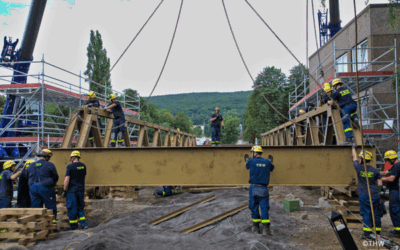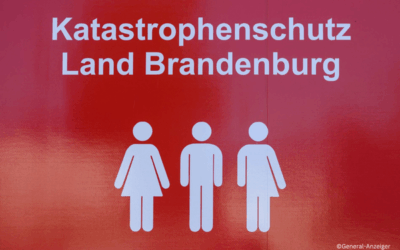The DKKV is…
German Committee for Disaster Reduction e.V. (ger.: Deutsches Komitee Katastrophenvorsorge e.V.)
Newsblog
New Metop-SGA1 satellite for improved weather forecasts
On 13 August 2025, the Metop-SGA1 satellite from the European Organisation for the Exploitation of Meteorological Satellites (EUMETSAT) will launch from Kourou (French Guiana). On board is the METimage multispectral camera, a high-tech measuring instrument designed to...
75 years of THW missions
The German Federal Agency for Technical Relief (THW) is celebrating its 75th anniversary this year. Since its founding in 1950, the organization has been active in a wide range of civil protection and disaster relief areas – from small daily operations to flood relief...
Severe seaquake Russia’s east coast
In the morning of 30 July 2025, a seaquake occurred off the east coast of Russia, with its epicentre in the open sea around 130 km off the coast of Kamchatka. With a measured magnitude of 8.8, the quake was the strongest worldwide since the Fukushima disaster in March...
Wildfire in central and northern Portugal
The Portuguese firefighters are currently fighting wildfires in several regions of the country. A total of around 2,700 firefighters with over 1,000 vehicles are involved in the operation [1]. The centre and north of the country are the worst affected. The situation...
Follow us





What is disaster risk reduction?
Storms, natural hazards and extreme events can quickly become a danger to people and the environment. But climate change, extreme urbanization, power outages and fires also offer potential hazards.
A disaster occurs when the functioning of a community or society is impaired or interrupted and, as a result, high human, material, economic and ecological losses occur that cannot be managed alone.
Precautionary measures can help to reduce the consequences and impact of the disaster. Depending on the hazard and personal circumstances, the precautionary measures to be taken may vary.
Find out more about potential hazards and individual precautionary measures on our topic pages.





